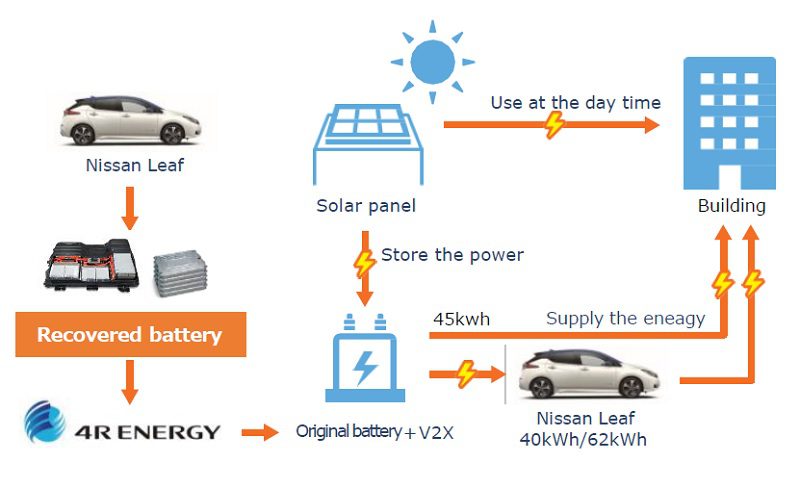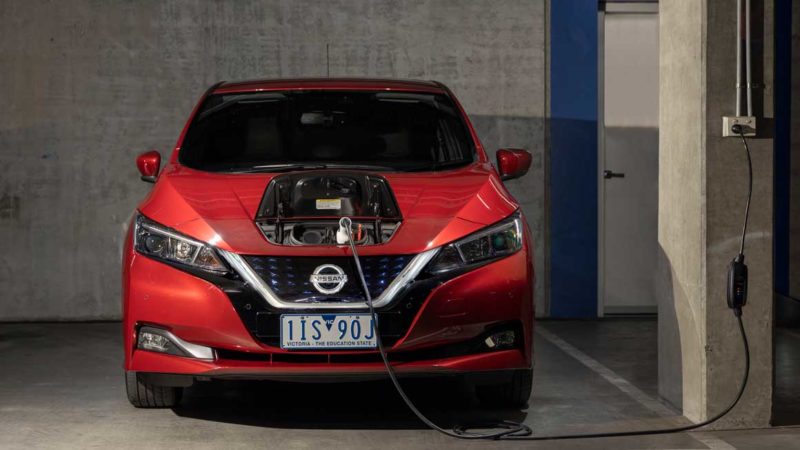Nissan and its energy offshoot 4R Energy have been recognised for the key role of the Nissan Leaf electric car – and its ability to send power back to the grid during natural disasters.
The car maker was presented the “Best Resilience Award” under the business and industry category by the 2020 Japan Resilience Awards – the only car maker to feature on the prize list.
It recognises the “Blue Switch” program founded by Nissan in 2018, in which Nissan aims to demonstrate the potential that electric vehicles have to play in times of emergency, energy management, and climate change.
By the end of March, Nissan aims to have concluded 31 agreements with Japanese local governments and companies supplying Leafs during and after natural disasters.
The Nissan Leaf, which has bi-directional charging capabilities that it is hoped will be approved for use by the end of 2020 in Australia, played an integral role after the 2011 earthquake and tsunami that struck Japan.
The disaster occurred just months after the Leaf’s launch, and Nissan provided more than 60 of its new EVs to provide power via the bidirectional EV.
“Less than three months after the first-generation LEAF launched, the northeastern coast of Japan was struck by the March 2011 earthquake and tsunami,” said senior manager of EV operations at Nissan Ryusuke Hayashi, in a story on the Nissan website about the disaster in 2019.
“4.8 million households lost power, and Nissan provided 66 Leafs to the disaster-struck area.”
“Medical professionals at an evacuation center were the first ones who approached us about possibly using them as back-up batteries for heating and other purposes – it was still cold up there in March.
“That experience triggered Nissan to accelerate development of technology that enables EVs to share the energy stored in their batteries with homes, buildings and communities.”
Recent agreements have seen Nissan provide Leafs to local communities to provide power sources at evacuation centres and welfare facilities when the power goes out.
In addition to providing Nissan Leafs as “mobile batteries” in times of emergency, 4R Energy (a joint venture between Nissan and Sumitomo Corp) has also developed a a stationary battery product that uses old 40kWh Leaf batteries as energy storage units.

Trials to test the re-purposed batteries have been underway at 7-Eleven stores in Japan’s Kanagawa prefecture since September 2019.
In the trials, energy is transferred from a Nissan Leaf to the repurposed battery that can also be charged via solar to either power a building, or if need be, recharge the car.
Nissan says it expects this new V2X (vehicle-to-everything) product will be available by the end of the Japanese 2020 fiscal year.

Bridie Schmidt is associate editor for The Driven, sister site of Renew Economy. She has been writing about electric vehicles since 2018, and has a keen interest in the role that zero-emissions transport has to play in sustainability. She has participated in podcasts such as Download This Show with Marc Fennell and Shirtloads of Science with Karl Kruszelnicki and is co-organiser of the Northern Rivers Electric Vehicle Forum. Bridie also owns a Tesla Model Y and has it available for hire on evee.com.au.

